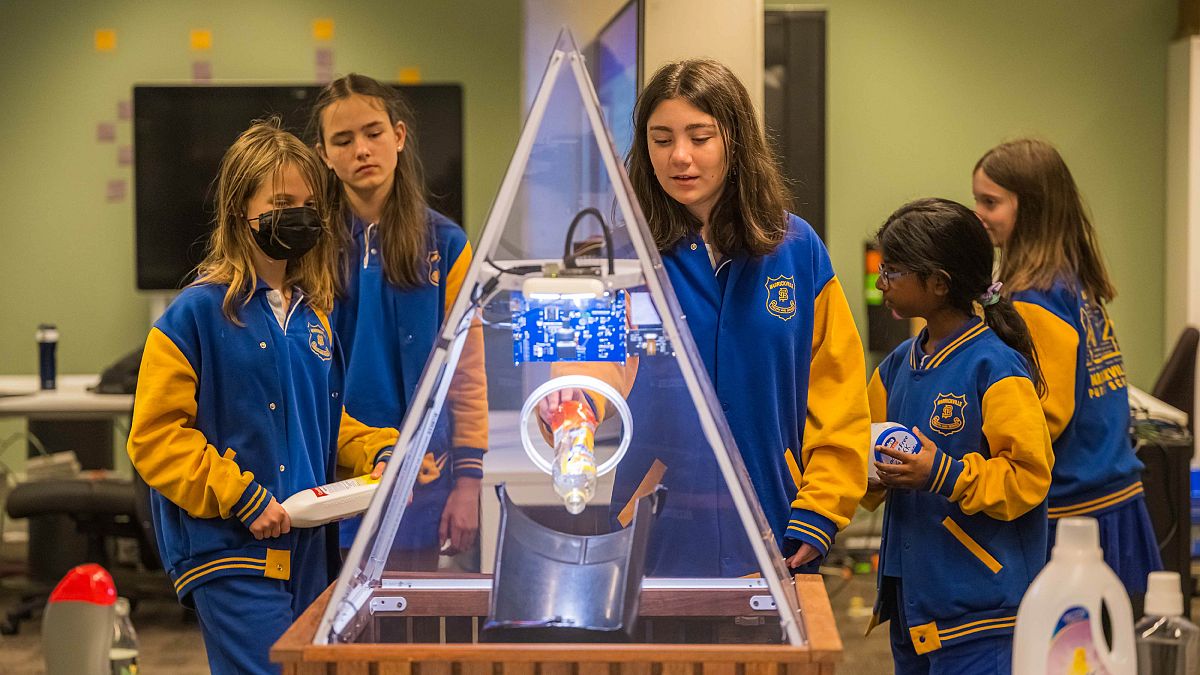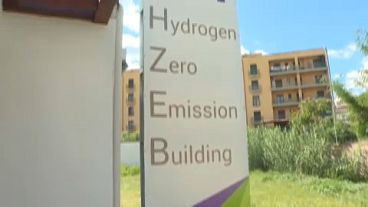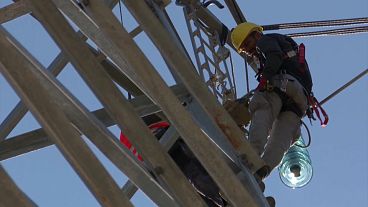The “smart bin” harnesses advanced technology including robotics, AI and sensors to properly identify and sort recycling waste.
Despite the best intentions, the sad reality is that only a fraction of the plastics we dutifully separate from the rest of our waste is ever truly recycled.
And one of the biggest contributing factors to this state of affairs is that plastic recycling isn’t properly sorted.
Take Australia, for example. According to the Australian Bureau of Statistics (ABS), almost half of the overall waste generated annually in the country is recycled.
But in New South Wales alone, only 10 per cent of the state’s 800,000 tonnes of plastics are recycled because they are not sorted properly, according to the Commonwealth Scientific and Industrial Research Organisation (CSIRO).
"The recycling process is quite complicated. If you go to the supermarket or for the daily recycling you need to know how to properly place all the recyclable (items), like bottles or others, into the right bins. You need to know the labels, know the icons," says Dr Xu Wang, from the School of Electrical and Data Engineering at the University of Technology Sydney.
With this in mind, Wang and a team of researchers from the university’s Global Big Data Technologies Centre (GBDTC) have designed a hi-tech “smart bin” that can do this sorting automatically.
The device is equipped with an arsenal of advanced technology, combining artificial intelligence, robotics and machine vision. Suffice to say, this is no average wheelie bin.
"This machine can classify different (types) of waste including glasses, metal cans and plastics,” says Wang.
More importantly, Wang says, the bin can recognise different types of plastics including PET (polyethylene terephthalate) and HDPE (high-density polyethylene).
"We combine the latest technologies including IoT (Internet of Things). We use different sensors to sense the weight, the matter, the materials. And also, we use the latest AI (artificial intelligence) technology,” says Wang.
“So, you can see, we have a camera and we're running an AI algorithm to classify different types of plastics and then we use IoT and other robotics technology to sort the waste into the bins," he adds.
According to a ”circular economy roadmap” the CSIRO published last year, innovations like this one could triple the number of jobs created in the waste recovery industry by encouraging the production of high-quality recycled material and the development of new markets.
For now, the bin is a prototype and still needs a bit of fine-tuning, but its inventors are already thinking of its commercialisation.
Ultimately, their dream is to see smart bins in shopping centres, schools, cinemas, businesses and airports.
"The customers can just drop the waste and go. Easy," says Wang.
For more on this story, watch the video in the media player above.



